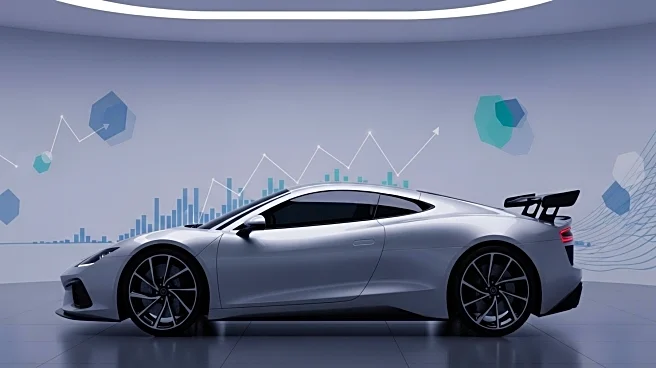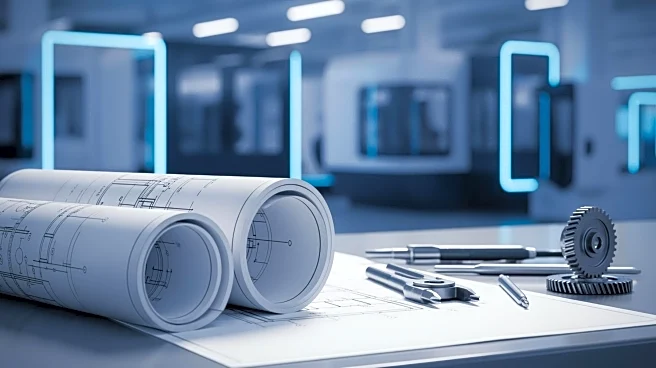What's Happening?
Porsche is reevaluating its product lineup in response to changing market conditions and regulatory pressures. The company announced delays in its electric vehicle plans, opting to introduce new SUV models with internal combustion engines and hybrid powertrains instead of battery-electric versions. This strategic shift is driven by slower growth in demand for exclusive battery-electric vehicles and challenges in the U.S. market, including tariffs and regulatory changes favoring combustion engines. Porsche aims to maintain a balanced portfolio to meet diverse customer needs while navigating a volatile environment.
Why It's Important?
Porsche's decision to scale back its electric vehicle ambitions highlights the complexities of transitioning to sustainable transportation amid fluctuating market dynamics and political influences. This move could impact the company's competitiveness and reputation as a leader in luxury EVs. By prioritizing a mix of combustion engines, hybrids, and electric vehicles, Porsche seeks to adapt to consumer preferences and regulatory landscapes, potentially affecting its financial outlook and market position. The shift may also influence other automakers' strategies, as they balance innovation with practical market demands.
What's Next?
Porsche's strategic realignment will involve continued updates to its existing electric models while preparing for future EV platforms. The company may face investor scrutiny and pressure to deliver on its revised plans, impacting its stock performance and leadership decisions. As Porsche navigates these changes, stakeholders will watch for developments in its product offerings and potential collaborations to enhance its EV capabilities. The broader automotive industry will observe Porsche's approach to balancing traditional and innovative technologies, influencing market trends and consumer expectations.









